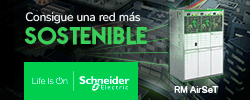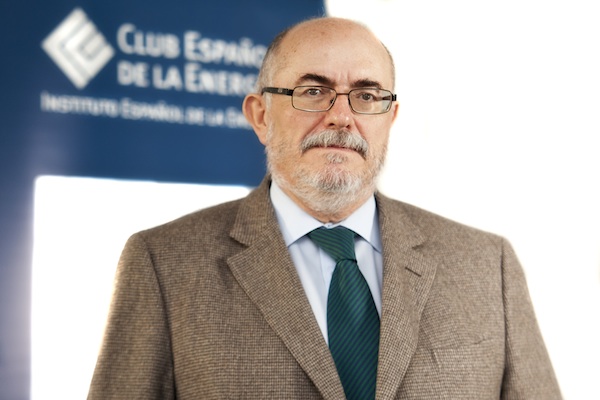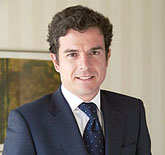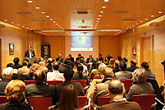Antonio Coppola, Head of Research and Development at Matica Technologies, explains in this article the conclusions of the market study commissioned by his company to MindMetre Research on the attitude of citizens regarding access to public services with a «smart card», as a key element in the evolution towards the «smart cities».
It could be said that before the government established the National Smart City Plan, this concept had already appeared in public (and private) thinking. Today there are a large number of Spanish cities that pose this concept or are in full transformation to be «smart cities.»
Antonio Coppola, Head of Research and Development of Matica
The city of Santander has more than 12,000 sensors. They control from the amount of garbage in the containers, the number of parking spaces available and the number of pedestrians walking on the sidewalks. Another example is Barcelona, which has been described as a world reference in its development as a smart city and that as part of its latest innovation plans to apply the latest generation of LED technology in city streetlights to reduce electricity consumption and light pollution.
Increasingly, cities assume that becoming «smart» not only brings great competitive advantages, but also improves the sustainability and quality of life of citizens. Growing economically and culturally involves many aspects such as improving accessibility to public services, being able to attract talent, and different factors that show the extent to which the city reaches that «smart» city classification level.
Intelligent technology is an essential component in the development and innovation that usually goes hand in hand with the city´s «digitization». Digitization is the process that connects people, IT (Information Technologies) and the tools necessary to provide optimal public services and, that in turn, save on spending. An obvious example is the transfer of the communication to the city council’s website instead of contracting workers for a call center or publishing information magazines.
[Pullquote] «Connecting the city´s physical reality to the online world is becoming the most popular feature of digitization» [/ pullquote]
Connecting the city’s physical reality to the online world is becoming the most popular feature of digitization. It is gratifying to see how digital evolution has the capacity to make public services more effective and profitable for both citizens and service providers.
The key seems to lie in the simple, but extremely safe, smart card. Barcelona´s «Bicing» project is a proof of this. It is a system that allows citizens to share a bicycle service throughout the city, operated through a smart card that enables users to unlock their bicycle smoothly.
No doubt we were sufficiently interested in this matter so as to commission MindMetre Research an independent market survey on people’s attitudes towards access to public services using a «smart card.»
[Pullquote] «Well, in Spain most of the people surveyed considered it essential that their city creates a single smart card that allows them to access the different public services» [/ pullquote]
Well, in Spain most of the people surveyed considered it essential that their city creates a single smart card that allows them to access the different public services. And 79% said they would like to pick up, renew and replace their smart card in a fixed location instead of having to wait to receive it. The current technology would make this feasible since it would allow to emit large volumes of cards in an instant, that is to say that smart cards could be produced in local offices.
In what kind of services do you think our citizens would like to use the card? In terms of «utility», the four following services obtained the highest percentages: identity validation (84%), exchanging discounts (86%), access to public services (84%) and public transportation (83%).
Some European cities have already developed smart cards. In Vienna, the public transport company has a card that is similar to the Oyster transport card in London, although the first also allows city residents to pay for taxis, car sharing and parking. And with regard to future plans, it will allow senior citizens and young people to redeem their respective discounts.
[Pullquote] «Out of the four countries surveyed (UK, Germany, Spain and France), it is shown that the Spaniards are the biggest supporters of smart cards.» [/ Pullquote]
On the other hand, one of the most outstanding activities with 79% of citizens in favor was the use of the card to carry out taxes payment. Although the average response in the rest of European nations was also positive (65%), I thought it was particularly interesting that above all in Spain they believed that the smart card would be useful for processing tax payments. Out of the four countries surveyed (UK, Germany, Spain and France), it is shown that the Spaniards are the biggest supporters of smart cards.
One of the government’s top hopes for smart cities is to foster a positive collaborative approach with its citizens to create services that people need. Thus, not only is it important to listen to people’s opinions and proposals, but also to act upon them. Otherwise, we risk seeing failed projects and precious wasted budgets, not to mention the loss of credibility when it comes to the benefits of smart cities.
Aside from the savings they produce, smart cards also play in favor of local governments by providing a means for capturing large amounts of data. These data can have multiple uses, but for smart cities, smart card data provide an unprecedented insight into people’s behavior around the use of services, which can be a great help in notably improving the functioning of our cities.
Carlos Sánchez Criado
Publicista por la Universidad Complutense. Director comercial de publicaciones técnicas del sector de la energía durante doce años. Director de Energy News Events, S.L. desde 2012 difundiendo información en Energynews.es, movilidadelectrica.com e hidrogeno-verde.es. Y por supuesto, organizando eventos como VEM, la Feria del Vehículo Eléctrico de Madrid.



























